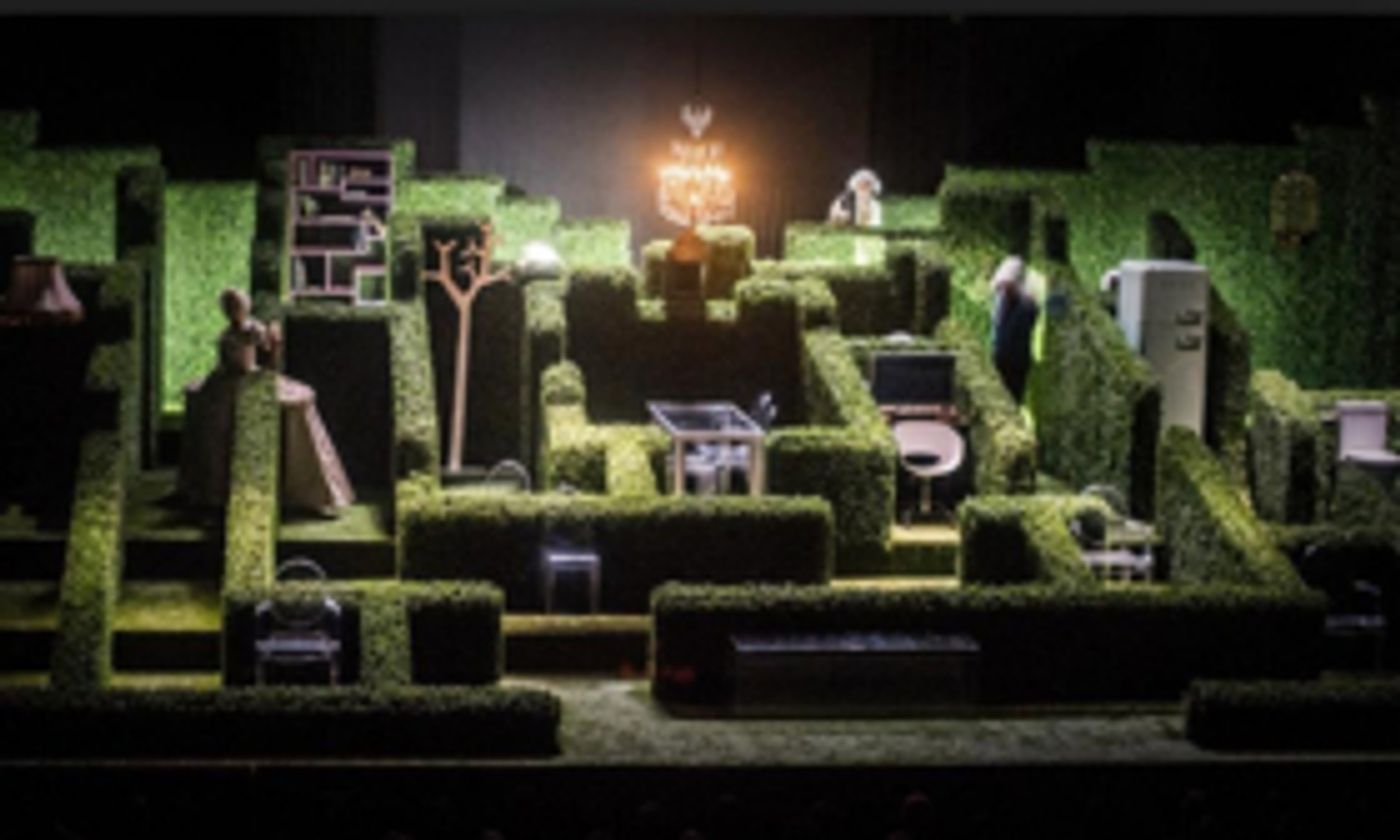Review: AVIGNON THEATRE FESTIVAL Presents TARTIUFAS Directed By OSKARAS KORSUNOVAS

An actor once vented to me after a performance that the cast "had something good, but the director screwed it up by trying to make it something important." The word "screwed" is my addition. So too is the fatal flaw of Oskaras Korsunovas's Tartiufas, now in performance in the Avignon Theatre Festival's Opera Confluence. The world is glowing in a post-baroque kitsch. The actors are superbly game, throwing themselves into daring feats of theatrical acrobatics. Yet, politically overcompensating, Tartiufas repeatedly doesn't stick the landing.
At its foundations Tartiufas is a Lithuanian translation of Molière's classic, Tartuffe. Performed by The Lithuanian National Drama Theatre, the dramatic contours remain essentially the same. A family is in disarray as Tartuffe, a falsely pious man, hoodwinks their father to give him everything he has. In a sting operation his hypocrisy is at last revealed, and the father, Orgon, attempts to throw Tartuffe out. It's too late. Tartuffe has received the deed to the house and all it contains. The law now on his side, he throws the newly minted trespassers out. Then, usually, an emissary from the king enters and reverses this because, quite simply, he can. Tartiufas did away with this abrupt reversal. In Tartiufas Tartuffe succeeds in his scheming. Dramatically, this works incredibly well. However, spiking the ball by having Tartuffe give the Nazi salute center stage as he's bathed in red light, that is simply distracting.
There is a single unassailable success in Tartiufas, and it is Vytautas Narbutas's superb scenography. On a raked stage Narbutas has stationed a large labyrinth of synthetic shrubbery. Interspersed in this labyrinth, like the majestic fountains of the garden of Versailles, are some spoils of modern life. Stage right one can find a modest library. Stage left one can discern a toilet, and a fridge freshly stocked with bottles of wine. Center stage, at the heart of the labyrinth, is a kitchen table with a crystal chandelier dangling directly above it. Lighting designer Eugenijus Sabaliauskas delightfully transforms this space with interspersed washes of jewel tones and controlled strobe-work.
The performance begins with splendid joy. Dressed in baroque wigs and garments that Fran Drescher's "Nanny" would find a bit ostentatious, actors begin to clown their way on stage. In full baroque dress Vesta Grabstaite enters dancing her own polite choreography. She is delightful, and a mood of blissful artistic mischief is established. Grandma, performed by Nele Savicenko, pulls a gun on the proceedings and establishes terrified order. Then, just before exiting, she complains about the brevity of her role in the play and assures us of her return.
Orgon soon enters the theatre from the side doors like a politician finally arriving to a campaign rally. Orgon is innocently oblivious in most tellings of Tartuffe that I've seen, with his family frustratedly in the know. Here, there is no such moral refuge. Everyone seems to have earned everything that has coming to them. They are capricious, overreacting, and are as hypocritical as Tartuffe. This makes Korsunovas's reversal of Molière's deus ex machina supremely satisfying. Music by Gintaras Sodeika accompanies the onstage action with an assist by Joris Sodeika on piano. Video work by Algirdas Gradauskas, while not always perfectly integrated into the stage action, does have some notable uses of distortion. Lastly, costumes by Sandra Straukaité are bold and delightful.
Despite so much working in the performance's favor, it has a habit of falling off the rails. For example, after the famous sting attempt against Tartuffe made by Orgon and his second wife Elmire, the three fall into an oddly timed ménage à trois. As someone familiar with the play, this is news to me. They then head backstage where they wax philosophical about theatre, and make bedroom eyes to the camera while messily eating spaghetti with their bare hands. Staggering back onstage, the video of them is replaced with a painting of Trump and Putin kissing. With so many layers shoved upon Molière's text, the work overheats.
Reader Reviews
Videos


